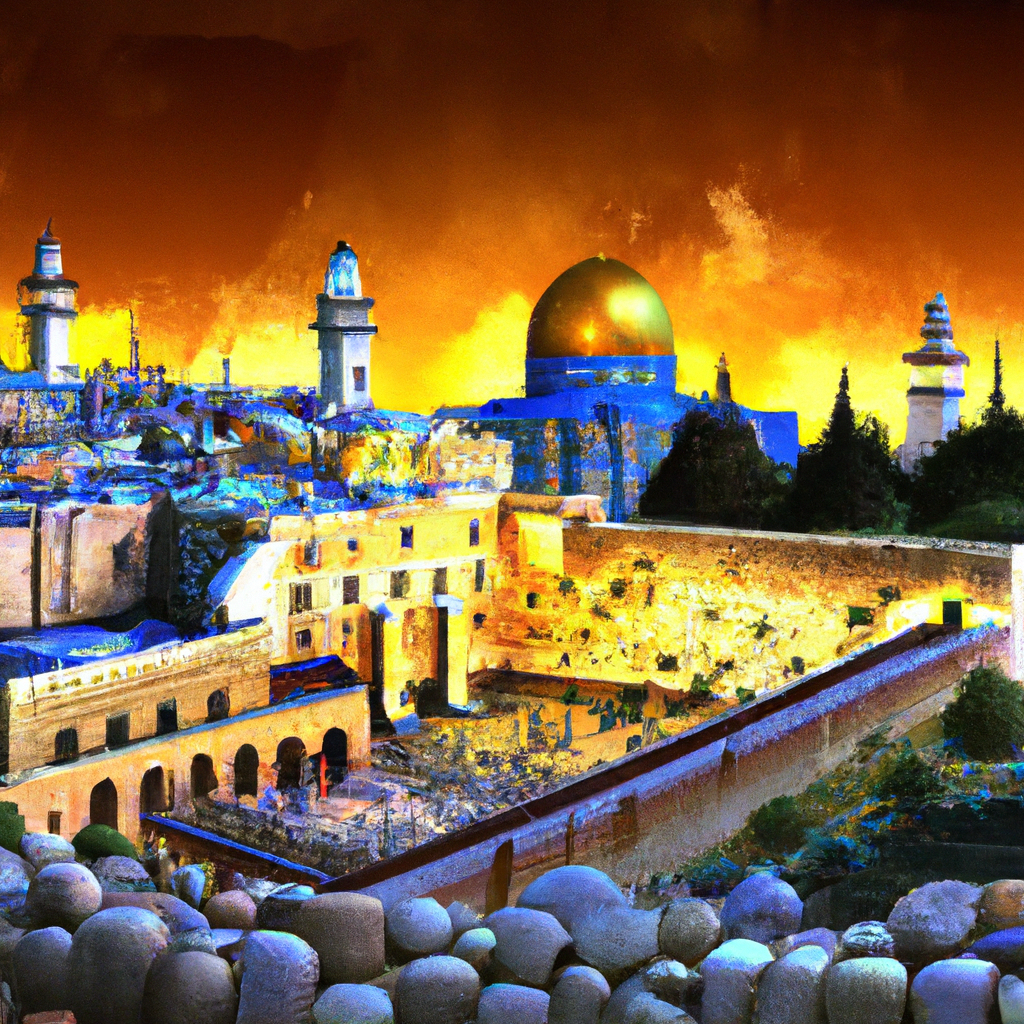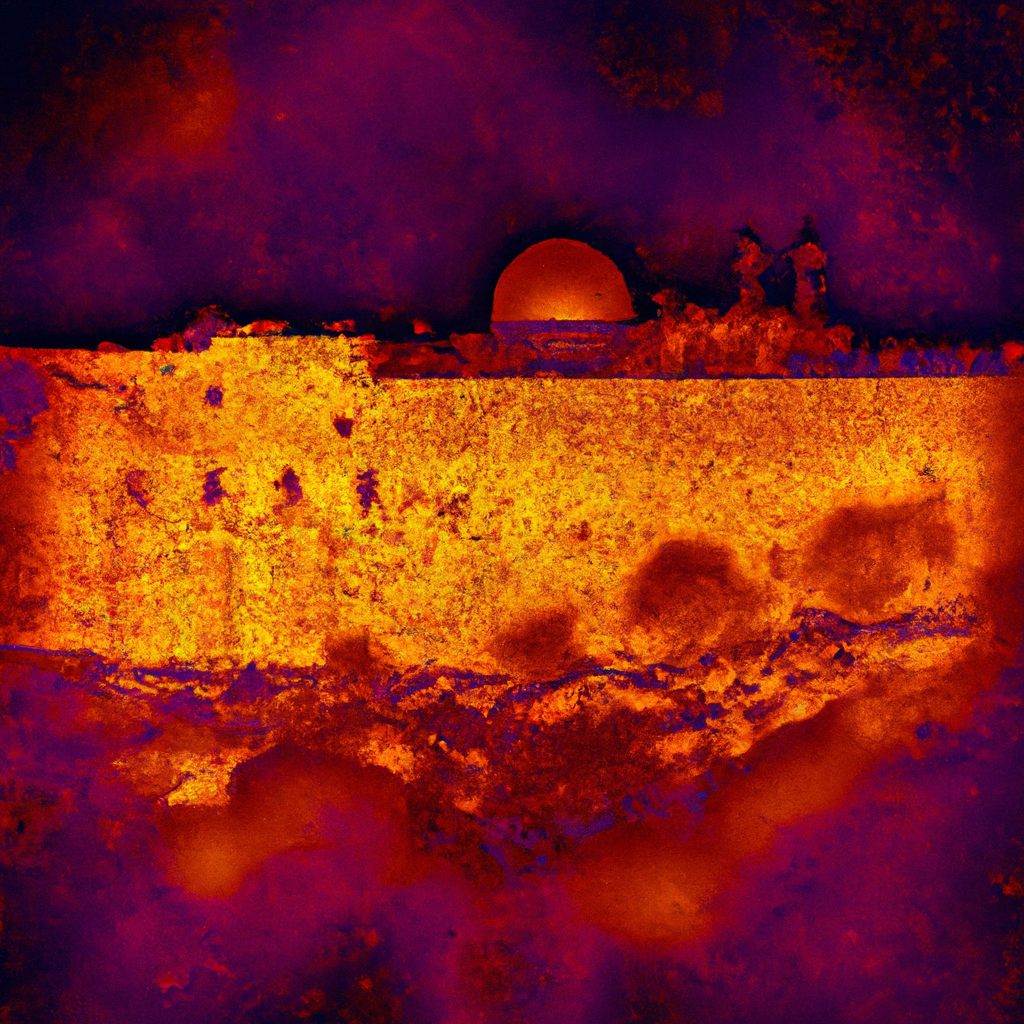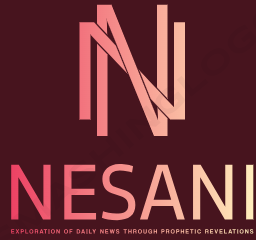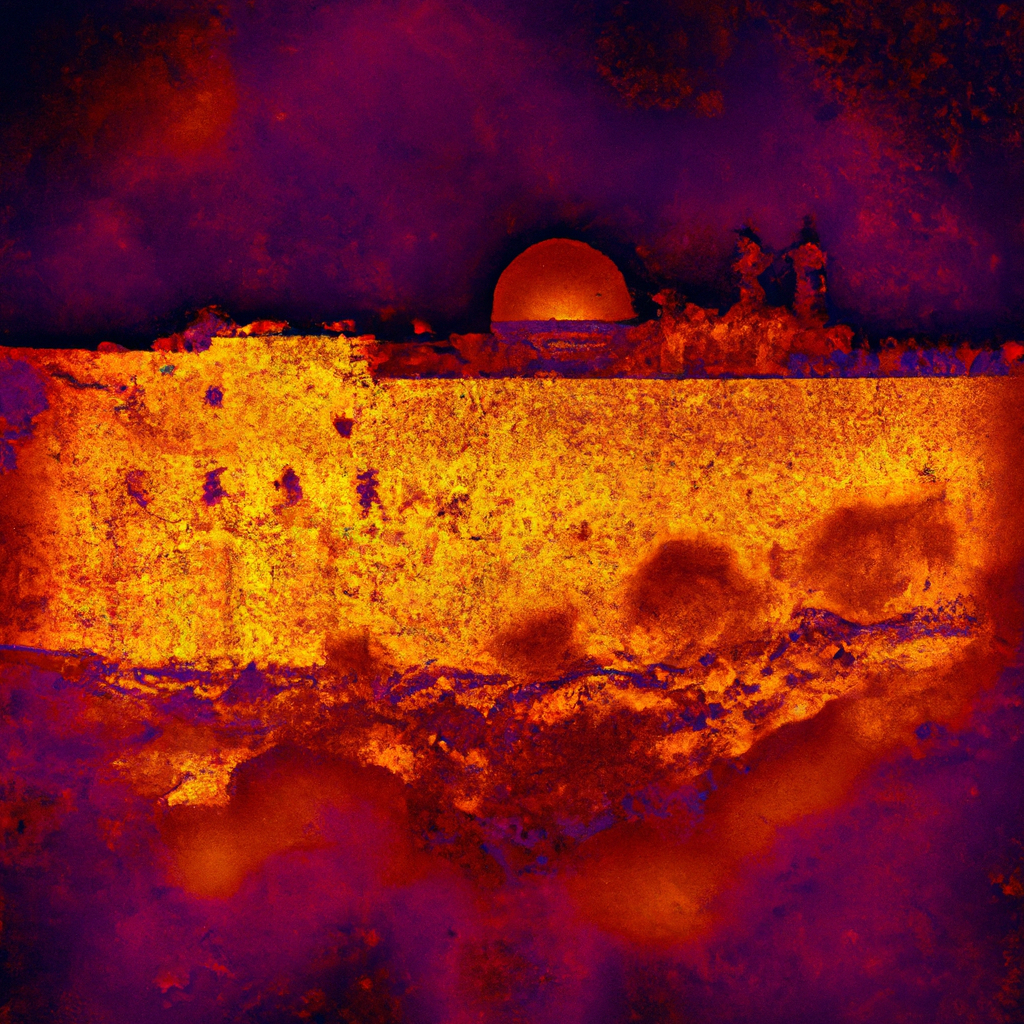Jerusalem holds a timeless significance in apocalyptic beliefs that stretches across various religious and cultural traditions. From Christian prophecies to Jewish scriptures, the holy city has held a central role in the eschatological narratives surrounding the end times and the ultimate fate of humanity. Understanding the profound importance placed on Jerusalem in apocalyptic beliefs offers a key insight into the depths of faith and the power of symbolism in shaping our collective perceptions of the future.

Biblical Significance
Jerusalem holds immense significance in various religious traditions, and it prominently features in apocalyptic beliefs across different faiths. In the context of Christianity, Judaism, and Islam, Jerusalem holds a special place as a site of historical and spiritual importance. Each religious tradition has its own unique interpretations and expectations regarding Jerusalem in relation to end-time events and eschatology.
Abrahamic Connections
For followers of the Abrahamic faiths – Judaism, Christianity, and Islam, Jerusalem holds deep connections to their shared ancestor, Abraham. In the Hebrew Bible, Jerusalem is known as the place where Abraham encountered Melchizedek, who blessed him (Genesis 14:18-20). This event is seen as an act of divine favor, reinforcing Abraham’s significance as the father of the Jewish people. Similarly, Jerusalem’s association with Abraham plays a crucial role in Christian and Islamic traditions, reflecting the city’s central position and serving as a reminder of their shared heritage.
Davidic Dynasty
Jerusalem’s importance is further highlighted through its association with the Davidic dynasty. In Jewish and Christian beliefs, David, the second king of Israel, established Jerusalem as the political and religious center of the nation. The promised Messianic figure, believed to be a descendant of David, is expected to reign from Jerusalem, bringing peace, righteousness, and the ultimate restoration of Israel. The notion of the Davidic Messiah holds significant importance for Jews and Christians, shaping their apocalyptic expectations centered around Jerusalem.
Temple Mount and the Holiness of Jerusalem
The Temple Mount, located within Jerusalem’s Old City, is a site of profound religious significance for Jews, Christians, and Muslims alike. In Jewish tradition, it is considered the holiest site as it was the location of the First and Second Temples. The destruction and subsequent loss of the Second Temple in 70 CE intensified messianic hopes for its restoration, further intertwining Jerusalem and the end-times narrative.
For Christians, Jerusalem’s sacredness stems from Jesus Christ’s association with the city during his crucifixion and resurrection. The Church of the Holy Sepulchre, built on the believed site of Christ’s crucifixion and burial, is a significant pilgrimage destination for believers.
Muslims regard the Temple Mount as the third holiest site and revere it as Al-Haram al-Sharif, where the Al-Aqsa Mosque and the Dome of the Rock stand. Constructed in the 7th century, these structures play a prominent role in Islamic eschatological beliefs, including the belief that they are connected to the final events of the world.
Zechariah’s Prophecies
Zechariah’s prophecies, found in the Hebrew Bible, specifically in the Book of Zechariah, shed light on Jerusalem’s apocalyptic significance. These prophecies speak of future events, such as the ultimate restoration and rebirth of Jerusalem, emphasizing its connection to divine intervention. Zechariah’s prophecies provide hope and serve as a rallying point for believers, further strengthening the significance of Jerusalem in apocalyptic narratives.
Islamic Significance
Al-Aqsa Mosque
In Islamic belief, Jerusalem is associated with the sacredness of Al-Aqsa Mosque, which is believed to be the place where Prophet Muhammad ascended to the heavens during the night journey. This event, known as Isra and Mi’raj, holds profound significance for Muslims and shapes their apocalyptic beliefs.
Isra and Mi’raj
Isra and Mi’raj refer to the miraculous night journey of Prophet Muhammad from Mecca to Jerusalem and his subsequent ascension to the heavens. It is believed that he traveled on a divine steed from the Al-Haram Mosque in Mecca to Al-Aqsa Mosque in Jerusalem, and from there, ascended through the various celestial realms.
This journey is seen as a spiritual and physical experience, connecting Jerusalem to the divine realm and the eschatological events that Muslims believe will unfold in the future. The significance of Jerusalem as the starting point of this journey underscores its crucial role in Islamic apocalyptic beliefs.
End Times Prophecies
Islamic apocalyptic beliefs, commonly referred to as Eschatology, include interpretations of end-time prophecies related to Jerusalem. According to these beliefs, signs and events will occur in Jerusalem, heralding the final judgment and the return of Mahdi, a messianic figure, who will establish justice, righteousness, and a perfect Islamic state. Furthermore, it is believed that Jesus (Isa), a highly revered prophet in Islam, will descend to Earth in Jerusalem and play a crucial role in defeating the false messiah (Dajjal).
These eschatological beliefs emphasize Jerusalem’s central place in Islamic apocalyptic narratives, making it an important focal point for Muslim believers.
Christian Significance
Second Coming of Jesus Christ
According to Christian teachings, Jesus Christ will return to Earth in his second coming, bringing an end to the present age and inaugurating the Kingdom of God. Jerusalem plays a significant role in these beliefs, as it is believed to be the city where Jesus will establish his reign and restore peace and justice to the world.
The anticipation of Christ’s return and the resulting transformation of Jerusalem are central themes in Christian apocalyptic interpretations. Believers hold onto the hope that their faithfulness will be rewarded when Jesus returns to Jerusalem, fulfilling biblical prophecies.
Book of Revelation
The Book of Revelation, the final book of the New Testament, contains vivid imagery and symbolic language describing apocalyptic events leading up to Christ’s second coming. In this prophetic text, the New Jerusalem, a symbol of the renewed creation, descends from heaven to Earth, representing the ultimate fulfillment of God’s promises to humanity.
The Book of Revelation and its apocalyptic visions provide profound interpretations of the significance of Jerusalem in Christian eschatological beliefs. With its intricate details and descriptions, it has captivated believers and shaped their hopeful expectations for the future.
Birthplace of Christianity
Jerusalem holds unparalleled importance as the birthplace of Christianity. It was in this city that Jesus began his ministry, performed miracles, was crucified, buried, and resurrected. The Church of the Holy Sepulchre, which encompasses the sites of Jesus’ crucifixion, burial, and resurrection, attracts millions of pilgrims each year, highlighting the enduring significance of Jerusalem in Christian beliefs.
The connection between Jerusalem and the foundational events of Christianity solidifies its preeminent position in Christian apocalyptic thought.
Jewish Significance
National and Religious Center
Jerusalem holds immense national and religious significance for the Jewish people. It is considered the historical and spiritual capital of Judaism, and the establishment of Jewish sovereignty over Jerusalem has been a long-standing aspiration for Jews around the world. The Jewish connection to the city dates back thousands of years, making Jerusalem an essential element in Jewish apocalyptic beliefs.
Western Wall and Jewish Identity
The Western Wall, also known as the Wailing Wall, is a remnant of the Second Temple and is one of the holiest sites in Judaism. It serves as a focal point for Jewish prayer, spiritual connection, and national identity. The Western Wall is believed to be the nearest accessible location to the Holy of Holies, the innermost sanctuary of the Second Temple, and holds tremendous religious and emotional significance for Jews worldwide.
The connection between the Western Wall, Jerusalem, and the Jewish identity is deeply rooted in Jewish apocalyptic expectations, reflecting their longing for the rebuilding of the Third Temple and the ultimate restoration of Jerusalem as a center of worship.
Messianic Expectations
Within Jewish apocalyptic beliefs, the Messiah holds a central role in the future redemption of the Jewish people and Jerusalem. Jewish tradition holds that the Messiah will come from the lineage of King David and will bring about a messianic age of peace, justice, and full realization of God’s presence. This expectation is intrinsically linked to Jerusalem, as the city is considered the epicenter of this future transformation.
Jewish apocalyptic literature, including texts like the Book of Daniel and certain rabbinic sources, elaborate on the role of the Messiah, the rebuilding of the Temple, and the restoration of Jerusalem. These texts have contributed to the ongoing significance of Jerusalem in Jewish eschatology.

Apocalyptic Events Associated with Jerusalem
Battle of Armageddon
The Battle of Armageddon, as described in the biblical book of Revelation, is often associated with Jerusalem. This apocalyptic conflict is believed to be the final battle between good and evil, where the forces of righteousness triumph over the forces of darkness. Prophecies within the Book of Revelation and other biblical texts suggest that this climactic battle will take place in the vicinity of Jerusalem.
The association of Jerusalem with the Battle of Armageddon signifies the city’s significance as the battleground for the ultimate struggle between opposing cosmic forces, leading to the establishment of a new, divinely ordered era.
The Great Tribulation
In many Christian and some Jewish apocalyptic beliefs, the Great Tribulation refers to a period of intense suffering, chaos, and spiritual purification before the culmination of end-time events. This tribulation is seen as a purging process, preparing the world for the new order that will follow.
Jerusalem features prominently in these narratives, with some interpretations suggesting that it will serve as a refuge or focal point for believers during this tumultuous period. The anticipation of the Great Tribulation heightens the apocalyptic significance of Jerusalem, as believers prepare themselves for the trials and challenges that lie ahead.
The Antichrist’s Rule
Apocalyptic beliefs surrounding Jerusalem often involve the rise of the Antichrist, a figure associated with deception and opposition to God. According to some Christian interpretations, the Antichrist will establish a global dominion and will eventually desecrate a rebuilt Jewish Temple in Jerusalem.
The presence of the Antichrist and the subsequent destruction or desecration of a holy site in Jerusalem are key components of some apocalyptic scenarios, emphasizing the city’s importance in eschatological narratives.
Eschatological Role of Jerusalem
Restoration of Jewish Sovereignty
For many Jews around the world, the restoration of Jewish sovereignty over Jerusalem has deep eschatological implications. The re-establishment of the State of Israel in 1948, after centuries of exile, is seen by some as a sign of the fulfillment of biblical prophecies and the beginning of the long-awaited messianic age.
Rebuilding of the Third Temple
The rebuilding of the Third Temple on the Temple Mount is a significant event anticipated by many Jewish believers. According to Jewish apocalyptic traditions, the Third Temple will be constructed on the Temple Mount before or during the messianic era, serving as a place of worship and a symbol of the restored relationship between God and the Jewish people.
The aspiration to rebuild the Temple is emblematic of the central role Jerusalem plays in Jewish eschatological beliefs. The rebuilding of the Third Temple is seen as both a religious duty and a harbinger of God’s imminent intervention in human history.
Gathering of Nations
Various apocalyptic beliefs envision Jerusalem as a gathering place for the nations in the end times. It is foreseen that people from all over the world will come to Jerusalem to worship and seek divine guidance. This gathering of nations represents the universal significance of Jerusalem and its role in bringing about global unity and spiritual harmony.
The idea of the gathering of nations in Jerusalem underscores its eschatological importance and highlights its potential as a catalyst for global transformation.
Controversial Jerusalem
Political Tensions and conflicts
The significance of Jerusalem in apocalyptic beliefs is deeply intertwined with ongoing political tensions and conflicts. The contested nature of the city, claimed by both Israelis and Palestinians as their capital, has fueled numerous conflicts and hindered peace negotiations. These political realities have not only impacted the daily lives of the people residing in Jerusalem but have also shaped apocalyptic narratives.
The ongoing political tensions surrounding Jerusalem serve as a backdrop to many eschatological interpretations, reflecting differing perspectives and fueling anticipation of the ultimate resolution of these conflicts in the context of end-time events.
Religious Coexistence Challenges
Jerusalem’s multi-religious nature, with its deep religious significance for Judaism, Christianity, and Islam, presents unique challenges for religious coexistence. The different religious communities often have divergent interpretations of the city’s significance and contested claims to various holy sites, leading to tensions and conflicts.
The complex relationships and interactions between different religious groups in Jerusalem shape apocalyptic beliefs, placing them within the context of religious diversity and the quest for religious supremacy in the end times.
Multifaith Perspectives on Apocalypse
Jerusalem’s role in apocalyptic beliefs extends beyond the boundaries of a single religion. The city’s significance as a holy site for multiple faiths has given rise to diverse interpretations and expectations regarding the end of the world. These multifaith perspectives on the apocalypse, albeit distinct, often converge on the idea that Jerusalem will play a pivotal role in the ultimate fulfillment of divine purposes.
The intersection of different religious traditions’ apocalyptic beliefs in Jerusalem serves as a rich area of interfaith dialogue and study, highlighting the complexities and diversity of eschatological interpretations.
Role of Jerusalem in Modern Apocalyptic Beliefs
Prophecies About Jerusalem’s Destruction and Rebirth
Throughout history, various individuals and religious groups have prophesied about Jerusalem’s destruction and subsequent rebirth. These prophecies often project apocalyptic scenarios, involving either physical or spiritual transformations that will fundamentally alter the city’s landscape and religious significance.
Religious figures, spiritual movements, and apocalyptic enthusiasts continue to associate Jerusalem with end-time events, drawing inspiration from these prophecies and perpetuating the belief in Jerusalem’s central role in the unfolding of history.
Fulfillment of End Time Scenarios
For those who hold apocalyptic beliefs, the events unfolding in Jerusalem are often perceived as harbingers of the imminent end of days. Political developments, disputes over holy sites, and the aspirations of various religious groups for dominance in Jerusalem are seen through the prism of eschatology, fueling expectations of the fulfillment of long-awaited prophecies.
The connection between current events in Jerusalem and the fulfillment of end-time scenarios contributes to the enduring importance of Jerusalem in modern apocalyptic beliefs.
Impact on Geopolitics
Influence on Middle East Peace Process
The significance of Jerusalem in apocalyptic beliefs has far-reaching implications for the Middle East peace process. The competing claims and aspirations for Jerusalem as a capital, and as a site of religious and cultural importance, have been a major obstacle in the resolution of the Israeli-Palestinian conflict.
Apocalyptic beliefs, often deeply rooted in religious and nationalist sentiments, can influence political decisions and shape public attitudes. The perceived importance of Jerusalem in the context of end-time events adds an additional layer of complexity to the already challenging task of achieving a sustainable peace agreement.
Conflict Trigger
Jerusalem’s contested status has historically been a trigger for various conflicts and acts of violence. Attempts to control or gain sovereignty over the city have fueled tensions between different religious and ethnic groups, leading to episodes of unrest and violence.
Apocalyptic beliefs associated with Jerusalem can exacerbate existing conflicts or create new fault lines, as differing interpretations clash and believers seek to fulfill their visions of the city’s future. The apocalyptic significance of Jerusalem is a contributing factor in the ongoing geopolitical strife in the region.
Role in International Relations
Jerusalem’s apocalyptic significance extends beyond regional conflicts and has implications for broader international relations. The involvement of global powers, including the United States, in the discussion of Jerusalem’s status highlights the city’s international importance and the potential impact of decisions regarding its sovereignty.
International involvement in the affairs of Jerusalem, driven in part by the recognition of its apocalyptic significance, underscores the complex intersection of religion, geopolitics, and eschatology.
Relevance for Followers of Apocalyptic Beliefs
Pilgrimages and sacred places
For followers of apocalyptic beliefs, Jerusalem holds immense spiritual significance, often motivating pilgrimage and the visitation of sacred sites. The opportunity to connect with the city and its holy places, to pray and seek spiritual guidance, reinforces the apocalyptic expectations and provides a tangible experience of the eschatological beliefs.
Devout believers consider visiting Jerusalem a crucial aspect of their faith journey, allowing them to draw closer to the center of their apocalyptic hopes and strengthen their commitment to their beliefs.
Hope and Salvation
Jerusalem’s significance in apocalyptic beliefs offers believers hope and salvation in the midst of a troubled world. The expectation of a future transformation, the ultimate defeat of evil, and the establishment of a divinely ordained order can provide solace and purpose to those grappling with personal challenges and uncertainties.
The centrality of Jerusalem in apocalyptic narratives encourages believers to persevere in their faith and find comfort knowing that their ultimate salvation lies in the city’s future redemption.
Guidance for Personal Life
Apocalyptic beliefs associated with Jerusalem often provide followers with a framework for daily life and moral decision-making. Believers may draw insights from prophetic texts, seeking guidance on how to live in anticipation of the fulfillment of end-time events.
The apocalyptic significance of Jerusalem shapes believers’ perspectives and influences their values, encouraging them to align their actions with the principles and expectations associated with eschatological hope.
In conclusion, Jerusalem’s importance in apocalyptic beliefs spans across various religious traditions. From its association with Abraham in the Hebrew Bible to its significance in the Second Coming of Jesus Christ, the rebuilding of the Third Temple, and the role of Al-Aqsa Mosque in Islamic apocalyptic expectations, Jerusalem remains a focal point for eschatological hope and beliefs. Its multi-religious nature, contested status, and geopolitical influence further contribute to its contentious yet profound place in the minds and hearts of millions. Whether through pilgrimage, political debates, or personal reflections, Jerusalem continues to inspire and shape apocalyptic interpretations among believers, offering a glimpse into the intersection of faith, history, and collective aspirations for the future.




